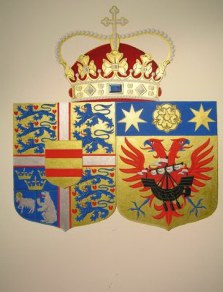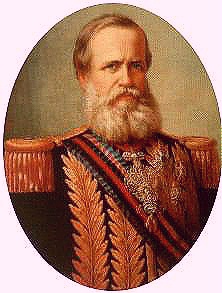The International Commission on Nobility and Royalty | home
Nobility, Royalty & Succession 

General Philosophy on Noble or Royal Descent and the Recognition of Nobility and Royalty
 (Note: If the pictures do not align up on the right side of the screen, please enlarge the print by going to "View" or "Page" and then "Text Size" and choosing a larger text. Or, narrow the screen in one of several ways till the pictures are all on the right side.) (Note: If the pictures do not align up on the right side of the screen, please enlarge the print by going to "View" or "Page" and then "Text Size" and choosing a larger text. Or, narrow the screen in one of several ways till the pictures are all on the right side.) |
Certification as being an actual descendant of royal or noble blood is simply a matter of submitting accurate and reliable genealogy that has been confirmed to be accurate. Of course, such would have to be checked thoroughly by an accredited professional genealogist to insure correctness.
But whether one is to be considered a noble or royal, which is a much higher and special degree of recognition, depends mostly upon the laws and practices of the particular nation involved and international attitudes and acceptance. Care, again, will be taken to respect those various laws and practices to insure that a correct and proper decision is made.
But it must be kept in mind, that the Commission does not recognize nobles or royalty for specific countries or kingdoms, such as, Spain, Jordan or Tonga. Rather an individual is recognized on a regional and/or continental basis only. For example, as a result of this policy, a Spaniard, who is of a noble house, would be recognized to be of European noble blood, a Jordanian royal would be of Asian or Arabian Royalty, and a person of the royal and noble blood of Tonga would be recognized to be a person of noble and royal Pacific or Oceanic descent. In others words, since we cannot legally speak for any particular country or past kingdom or empire that no longer exists, we have determined only to recognize true nobility and royalty only on a regional and/or continental level.
If a non-noble or non-royal person obtains a noble or royal title or feudal crown, which was legally, officially and legitimately conveyed upon him or her and it was accepted and approved by the sovereign head of the appropriate family, then this person will also be given recognition as being part of the appropriate nobility or royalty of the earth on a regional basis. Justification for this is simply that all noble or royal families had a beginning and became noble or royal at some point in history. This came through various means, by peaceful purchase, by sheer force and by subterfuge or deceit. But the point is, a true title holder in modern times will be given recognition, not as a part of the historical nobility or royalty of a particular country, but as a noble or royal person simply by virtue of being the actual owner of a true and legitimate noble or royal title.
General Philosophy on Succession Problems or Conflicting Claimants
Royal houses with two or more claimants often have great difficulty resolving their differences. Each is highly motivated to hold onto their arguments instead of solving the situation. The International Commission could help a "de jure" royal family as neutral arbitrators. However, the Commission will not entertain the idea of being involved unless all parties to a claim cooperate and support the Commission with all the required evidence and arguments needed as well as allow for expert witnesses to be consulted. Otherwise, a fair and equitable ruling becomes impossible, if not extremely difficult. In other words, the Commission will not get involved in any unfair proceedings where facts are withheld or hidden in order to manipulate the outcome. If the truth, the whole truth and nothing but the truth cannot exist in a case, we must respectfully withdraw or decline to be involved. This is in the best interests of everyone involved. No arbitrary or capricious decisions will be tolerated.
International Commission could help a "de jure" royal family as neutral arbitrators. However, the Commission will not entertain the idea of being involved unless all parties to a claim cooperate and support the Commission with all the required evidence and arguments needed as well as allow for expert witnesses to be consulted. Otherwise, a fair and equitable ruling becomes impossible, if not extremely difficult. In other words, the Commission will not get involved in any unfair proceedings where facts are withheld or hidden in order to manipulate the outcome. If the truth, the whole truth and nothing but the truth cannot exist in a case, we must respectfully withdraw or decline to be involved. This is in the best interests of everyone involved. No arbitrary or capricious decisions will be tolerated.
If no claim is clearly better than any other, then the only way to solve the problem is for the parties to use their jointly held rights to decide upon a single head and to rewrite their house rules accordingly to preserve their family rights to the end of time.
 For contact information or to join the Commission as a contributor or apply for certification for titles, knighthood, status or ancestry, please first read the "Disclaimer and Obligatory Contract." If you fully agree with them, you are welcome to contact us, make contributions, answer our survey and/or become a part of this important cause. This required agreement is a good faith or goodwill gesture of sincerity, that can go a long way to ensure our continued existence and service to the cause of nobility and royalty. We need your support. There is so much that needs to be done. We invite you to contribute.
For contact information or to join the Commission as a contributor or apply for certification for titles, knighthood, status or ancestry, please first read the "Disclaimer and Obligatory Contract." If you fully agree with them, you are welcome to contact us, make contributions, answer our survey and/or become a part of this important cause. This required agreement is a good faith or goodwill gesture of sincerity, that can go a long way to ensure our continued existence and service to the cause of nobility and royalty. We need your support. There is so much that needs to be done. We invite you to contribute.
Please answer the seven questions on our "SURVEY" page and make a comment.
But, first, before you do so, please read either the article entitled "Ideals" or the one entitled "Advantages."
© Copyright 2005 - International Commission on Nobility and Royalty. All Rights Reserved.
 (Note: If the pictures do not align up on the right side of the screen, please enlarge the print by going to "View" or "Page" and then "Text Size" and choosing a larger text. Or, narrow the screen in one of several ways till the pictures are all on the right side.)
(Note: If the pictures do not align up on the right side of the screen, please enlarge the print by going to "View" or "Page" and then "Text Size" and choosing a larger text. Or, narrow the screen in one of several ways till the pictures are all on the right side.)

 International Commission could help a "de jure" royal family as neutral arbitrators. However, the Commission will not entertain the idea of being involved unless all parties to a claim cooperate and support the Commission with all the required evidence and arguments needed as well as allow for expert witnesses to be consulted. Otherwise, a fair and equitable ruling becomes impossible, if not extremely difficult. In other words, the Commission will not get involved in any unfair proceedings where facts are withheld or hidden in order to manipulate the outcome. If the truth, the whole truth and nothing but the truth cannot exist in a case, we must respectfully withdraw or decline to be involved. This is in the best interests of everyone involved. No arbitrary or capricious decisions will be tolerated.
International Commission could help a "de jure" royal family as neutral arbitrators. However, the Commission will not entertain the idea of being involved unless all parties to a claim cooperate and support the Commission with all the required evidence and arguments needed as well as allow for expert witnesses to be consulted. Otherwise, a fair and equitable ruling becomes impossible, if not extremely difficult. In other words, the Commission will not get involved in any unfair proceedings where facts are withheld or hidden in order to manipulate the outcome. If the truth, the whole truth and nothing but the truth cannot exist in a case, we must respectfully withdraw or decline to be involved. This is in the best interests of everyone involved. No arbitrary or capricious decisions will be tolerated.  For contact information or to join the Commission as a contributor or apply for certification for titles, knighthood, status or ancestry, please first read the "Disclaimer and Obligatory Contract." If you fully agree with them, you are welcome to contact us, make contributions, answer our survey and/or become a part of this important cause. This required agreement is a good faith or goodwill gesture of sincerity, that can go a long way to ensure our continued existence and service to the cause of nobility and royalty. We need your support. There is so much that needs to be done. We invite you to contribute.
For contact information or to join the Commission as a contributor or apply for certification for titles, knighthood, status or ancestry, please first read the "Disclaimer and Obligatory Contract." If you fully agree with them, you are welcome to contact us, make contributions, answer our survey and/or become a part of this important cause. This required agreement is a good faith or goodwill gesture of sincerity, that can go a long way to ensure our continued existence and service to the cause of nobility and royalty. We need your support. There is so much that needs to be done. We invite you to contribute.